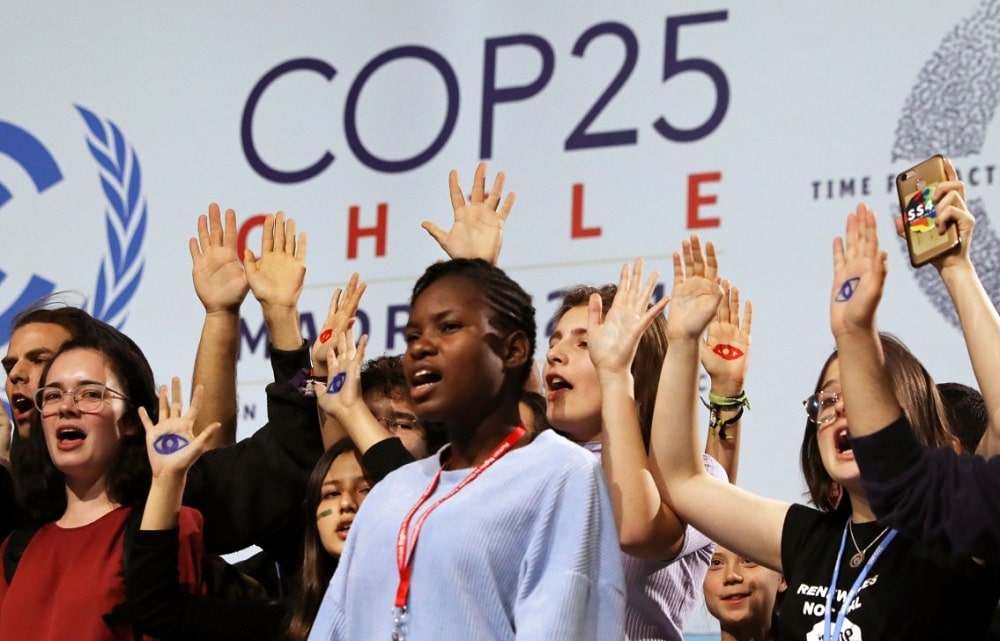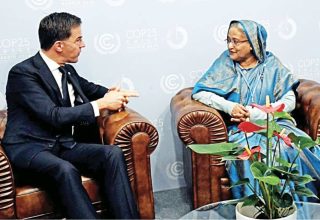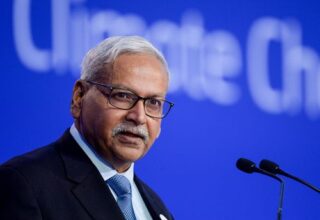
The 25th Conference of Parties (COP25) of the United Nations Framework Convention on Climate Change (UNFCCC) started on December 2 and was due to finish after about two weeks, on December 13 (Friday). However, it went into overtime for non-stop negotiations through Friday night and Saturday day and night, to finally finish two days late on Sunday afternoon. It is thus the longest COP ever held.
Even after all that time, however, there was agreement on only some of the items. The final topic involved the discussion of Article 6 on allowing trading of carbon credits, where some countries such as Brazil and India wanted their old carbon credits under the Kyoto Protocol to be counted under the Paris Agreement. Even after two days of non-stop negotiations, this topic remains unresolved and has been moved on to the COP26 agenda for next year.
The other topics where agreements were reached include capacity building, ambition, finance and Warsaw International Mechanism (WIM) on Loss and Damage.
On the issue of loss and damage, Bangladesh, along with other vulnerable developing countries, had been demanding the addition of an implementation financing wing to the WIM. We got the creation of the Santiago Network on Loss and Damage which is a good outcome but we didn’t get the finance part. Nevertheless, all is not lost as we can continue to work on exploring finance for loss and damage in the future.
The extension of negotiations beyond the two weeks of official talks has an extremely debilitating impact on the vulnerable developing countries as most of their delegates had to leave Madrid, where COP25 was held, and could not be there until the end to prevent their text disappearing in the final version.
As this has become a usual practice, Bangladesh should join with other vulnerable countries’ groups and demand that, in future COPs, the deadline of Friday is made a hard deadline and anything that is undecided by then is automatically taken forward to the next COP. If the Presidency of the COP feels that overnight negotiations are essential, then this should be done on Wednesday and Thursday nights and not on Friday and Saturday nights.
At the same time, the government should allow some of the senior negotiators to remain for an extra two days beyond the official end, in case the negotiations go into overtime. By not being there at the end, we risk losing everything we wanted in the final decision, as the final agreement always drops our text unless we stay until the end to defend it.
One of the bigger issues that the COP failed to address was to even recognise the magnitude of the global climate change problem, which was highlighted by a special report by the Intergovernmental Panel on Climate Change (IPCC) on the Cryosphere and Oceans that highlighted the higher sea level rise now being expected. Some countries refused to even recognise the science from the IPCC.
The other big issue was the role of children and civil society who use the term “climate emergency” rather than climate change, and were led by Greta Thunberg in a march in Madrid with half a million people. The COP president invited Greta to come to the COP and speak. The negotiators listened to her politely but then ignored her message of urgency and went back to endless arguments over comas and obscure terms that no one else even understands.
Finally, the Bangladesh government took a nice pavilion at COP25 in Madrid which was inaugurated by Prime Minister Sheikh Hasina when she attended the first day of the COP. This allowed the government as well as Bangladeshi NGOs and researchers to run sessions which were quite well-attended. The initiative to have a pavilion enabling non-governmental actors to join in using it was a good and practical way of demonstrating the whole-of-society approach to tackling climate change in Bangladesh.
The Bangladesh delegation also held a daily debrief every evening where other Bangladeshis were invited to attend and provide inputs to the official delegation. Over the years, Bangladesh has developed some excellent climate change negotiators. However, we also need to invest in building the capacity of younger negotiators who can take over after some years.
Originally this article was published on December 18, 2019 at Daily Star. The author Dr. Saleemul Huq is the director of the International Centre for Climate Change and Development (ICCCAD) at the Independent University, Bangladesh (IUB).
Email: saleemul.huq@icccad.net





